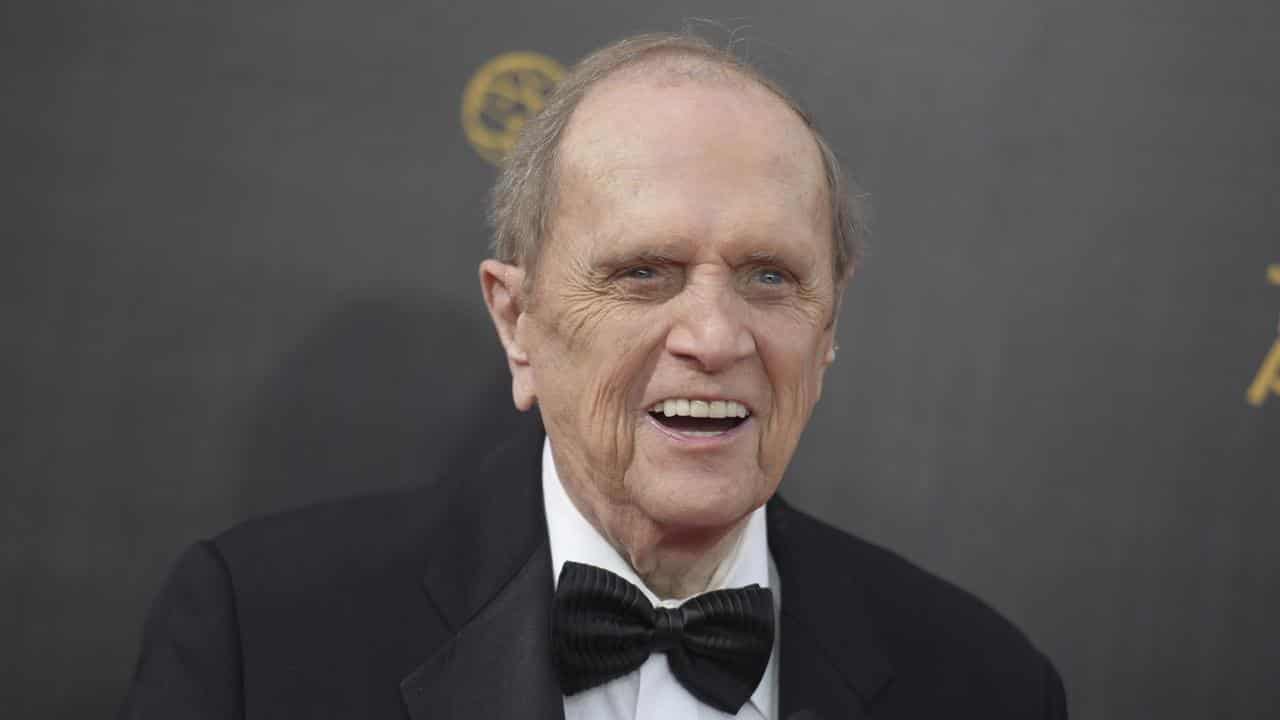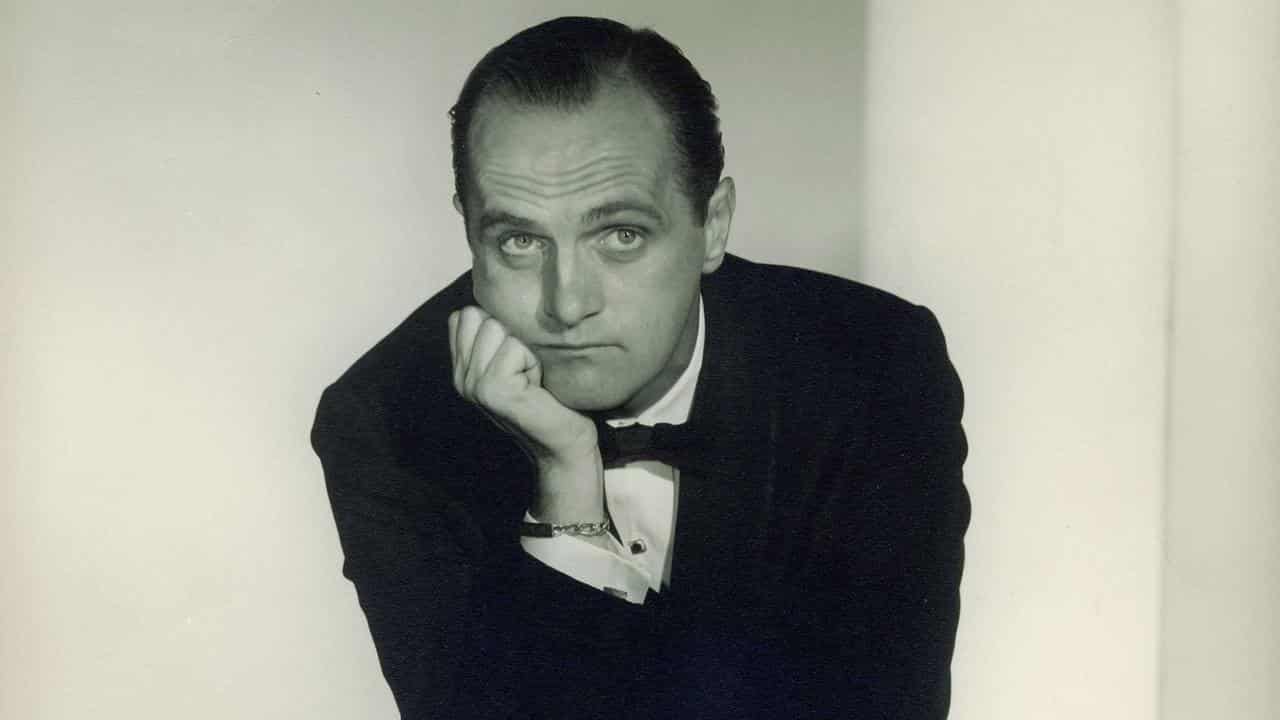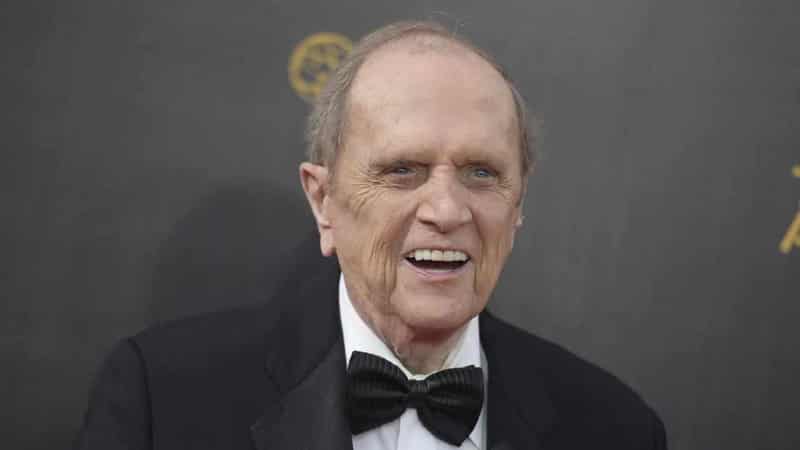
Bob Newhart, who fled the tedium of an accounting job to become a master of stammering, deadpan humour as a stand-up comedian and later as a US television sitcom star, has died aged 94, his publicist has announced.
Newhart died at his home in Los Angeles on Thursday after a series of short illnesses, his longtime publicist Jerry Digney said.
Newhart had two hit shows - first playing a psychologist on The Bob Newhart Show from 1972 to 1978, and then portraying a Vermont innkeeper on Newhart from 1982 through 1990. In both shows he relied on a bland, cardigan-clad everyman character who is confounded by the oddball people around him.

Newhart was nominated for Emmy Awards nine times, beginning in 1962 for writing on his short-lived variety show, but did not won until 2013 when he was given the award for a guest appearance on The Big Bang Theory as Professor Proton (Arthur Jeffries).
Newhart's career began in the late 1950s, with a comedy routine in which he played straight man to an unheard voice on the other end of a telephone call. Tommy Smothers of the Smothers Brothers duo called Newhart "a one-man comedy team" because of his dialogues with invisible partners.
His 1960 live album, The Button-Down Mind of Bob Newhart, was a big hit that was also highly influential. It became the first comedy album to top the charts and earned him three Grammy awards.
Newhart's characters had a trademark stammer, which he said was not an act but the way he really talked. He said a TV producer once asked him to cut down on the stammer because it was making the shows run too long.
"'No,' I told him. 'That stammer bought me a house in Beverly Hills,'" Newhart wrote in his memoir, I Shouldn't Even Be Doing This!
He ended his Newhart show in 1990 with an episode regarded as one of the most unique in the annals of US television. In the last scene of the series he awakens in bed with his wife from the first series after "dreaming" his life in the second series.
Newhart sprung from an era of angry, edgy stand-up comics such as Lenny Bruce, Shelley Berman and Mort Sahl, but his act was subtly subversive, without the profanity or shock used by his contemporaries.
He exploited his hesitant, bashful ordinariness to skewer society in his own fashion - including sketches about how a publicity agent would "handle" Abraham Lincoln or one featuring an inept official on the phone with a frantic man trying to defuse a bomb.
In the late 1950s Newhart had a boring accounting job - in which he claimed that his credo was "that's close enough" - and began writing comedy sketches with a colleague as a diversion. Those led to radio performances and eventually a record deal with Warner Bros.
"Probably the best advice I ever got in my life was from the head of the accounting department, Mr. Hutchinson, I believe at the Glidden Company in Chicago, and he told me, 'You really aren't cut out for accounting,'" Newhart told an interviewer.
Before winning an Emmy in 2013, Newhart had been nominated three times for his acting on Newhart, once for writing on his 1961 variety show and twice for appearances on other shows. He also was a frequent guest on variety shows and talk shows.
He appeared in a number of movies including On A Clear Day You Can See Forever," Catch-22, and Elf.
In 2002, he was awarded the Kennedy Center's Mark Twain Prize for American Humor. Asked by the New York Times in 2019 whether he felt 90 years old, Newhart said, "My mind doesn't. I can't turn it off."
Newhart was introduced by comedian Buddy Hackett to his future wife, Virginia, whom he married in 1964. The Newharts had four children.









